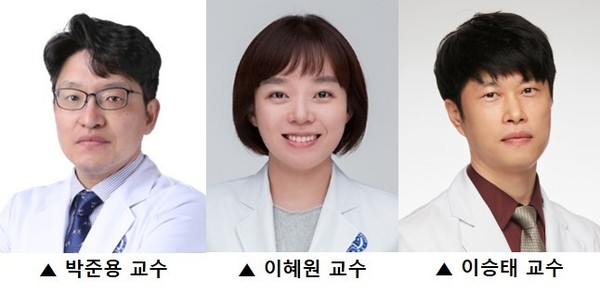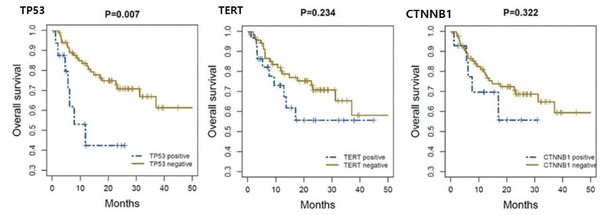Yonsei University Severance Hospital said on Tuesday that its researchers applied liquid biopsy circulating tumor DNA (ctDNA) tests to predict the prognosis of hepatocellular carcinoma (HCC) patients and observe post-cancer treatment reactions like immunotherapy.

Liver cancer is an incurable disease that ranks second in mortality among all cancers in Korea and also has the highest economic burden. With early detection, the treatment rate is high, but progressive liver cancer has various causes and high genetic heterogeneity, makes treatment and prognosis difficult.
Accordingly, liquid biopsy offers earlier detection, treatment and prognosis of cancer patients with improved cancer monitoring abilities as it can be tested repeatedly. It tracks the progression of diseases such as cancer by analyzing nucleic acid fragments present in blood, saliva, and urine, unlike the existing tissue biopsy that directly removes the patient's tissue.
The research team, led by Professor Park Jun-yong, conducted tissue biopsy and serum liquid biopsy on 102 HCC patients and 41 non-liver cancer patients at Severance Hospital from 2017 to 2018.
According to the researchers, TP53, TERT, and CTNNB1 genetic mutations were found in about 50 percent of the HCC patient group with high frequency in tissue and blood samples. They also conducted a circulating tumor DNA (ctDNA) recognition analysis that circulates in the blood using molecular barcode sequencing to increase the accuracy as this method effectively eliminates sequencing errors and enhances the sensitivity of the test.

Consequently, they found that the gene mutation profile of the ctDNA liquid biopsy test was similar to the test using tissue samples and the TP53 mutation was directly related to the prognosis of patients.
HCC patients with TP53 mutations showed significantly worse survival rates (P value = 0.007) than patients without them but the TERT and CTNNB1 mutations did not significantly affect the patients survival.
“We identified mutant genes that affect treatment prognosis in HCC patients who have difficulty predicting treatment response and found that liquid biopsy can be used in the treatment and prognosis of patients.” Professor Lee Hye-won said.
Lee added that his team expects to use this method to provide personalized chemotherapy treatment based on the patient's cancer-related gene mutations.
The study was published in the latest issue of the international academic journal "Liver International”.

